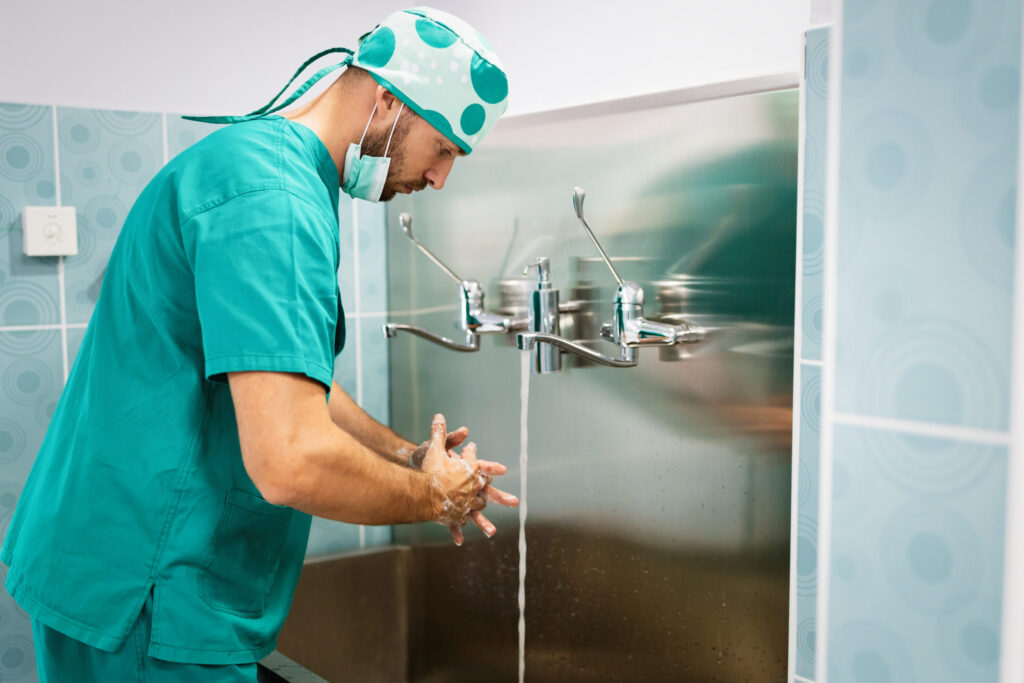Healthcare workers are on the front lines of the fight against the spread of disease. Therefore, infection prevention in the hospital is of the utmost importance. Proper hand hygiene is a simple, but essential, way to protect yourself and your patients. Keep reading to learn the proper techniques for hand hygiene.
Wash your hands thoroughly.

It is vitally important for healthcare workers to wash their hands thoroughly in order to prevent the spread of infection. By not washing their hands properly, healthcare workers can spread germs and diseases to patients, other workers, and themselves. This can lead to serious health complications for everyone involved. That is why it is so important for healthcare workers to wash their hands properly every time they interact with a patient. They should use soap and water, and scrub their hands for at least 20 seconds. They should also make sure to dry their hands completely. If healthcare workers cannot wash their hands properly, they should use hand sanitizer. They should make sure to rub their hands together until the hand sanitizer is dry. It is also important for patients and their families to remind healthcare workers to wash their hands. If you see a healthcare worker not washing their hands, please remind them to do so. By working together, healthcare workers can help keep everyone healthy and safe.
Wear gloves.
There are a number of reasons why healthcare workers should wear gloves. The first reason is that gloves protect workers from getting sick. By wearing gloves, workers are less likely to come in contact with germs and bacteria. This is especially important in hospitals, where there is a high risk of coming in contact with patients who are sick. Another reason why healthcare workers should wear gloves is to protect the patients. By wearing gloves, workers are less likely to spread germs and bacteria to the patients. This is especially important in hospitals, where patients are already sick and need to be protected from further infection. Finally, gloves protect the workers from getting injured. By wearing gloves, workers are less likely to get injured by sharp objects or by coming in contact with hazardous materials. This is especially important in hospitals, where there is a high risk of coming in contact with dangerous materials.
Avoid touching contaminated surfaces.

The potential for healthcare workers to come in contact with contaminants is high, and therefore it is important for them to take precautions to avoid touching contaminated surfaces. By following some simple guidelines, workers can help to minimize their risk of exposure. Workers should be aware of the areas in the hospital that are most likely to be contaminated. These include the floors near the patient’s bed, the bed rails, and the bed sheets. Workers should take care to avoid these areas whenever possible. Workers should clean their work areas frequently and properly. This includes disinfecting all surfaces and properly disposing of any waste. By following these simple guidelines, healthcare workers can help to prevent the spread of infections.
Avoid contact with bodily fluids.
There are a plethora of reasons why healthcare workers should avoid contact with bodily fluids. The most obvious reason is that contact with bodily fluids can lead to the spread of infection. In addition, contact with bodily fluids can also lead to the spread of other diseases, such as HIV and AIDS. Another important reason for avoiding contact with bodily fluids is that it can be dangerous for the healthcare worker. If a healthcare worker comes into contact with bodily fluids, they could be exposed to a number of dangerous diseases. These diseases could potentially make the healthcare worker very ill and could even be fatal. It is also important to note that not all bodily fluids are created equal. Some bodily fluids, such as blood, are more likely to contain harmful pathogens than others. Healthcare workers should take extra precautions when coming into contact with these types of bodily fluids.
Overall, proper hand hygiene techniques are important for healthcare workers as they can help to prevent the spread of infection. By following the correct procedures, workers can clean their hands effectively and reduce the risk of transmitting disease.







